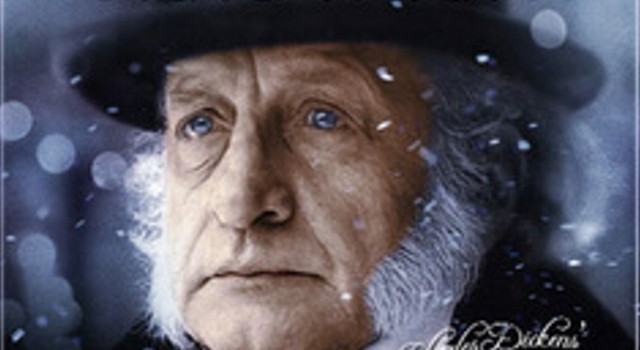 One of my favorite Christmas movies is the version of “A Christmas Carol” starring George C. Scott as Ebenezer Scrooge. I confess that I understand Scrooge’s character.
One of my favorite Christmas movies is the version of “A Christmas Carol” starring George C. Scott as Ebenezer Scrooge. I confess that I understand Scrooge’s character.
Ebenezer Scrooge — a denizen of early Victorian London — is a solitary and miserly businessman who spends his days keeping track in giant ledgers of all the money he doesn’t spend, and his nights alone in a huge, drafty house he’s too cheap to heat. He isn’t in debt, lives well within his means, and makes shrewd investments. He is such a consistent and understandable character; sometimes it seems like a tragedy that he changes in the end.
My favorite character, however, is Fezziwig. In Scrooge’s youth, Fezziwig and his wife throw open their doors to friends and family spending three or four pounds to provide a fiddler, some foolishness, and a feast the likes of which one would never forget.
“A small matter,” comments the Spirit, “to make these silly folks so full of gratitude.”
Scrooge, defending the joy of Fezziwig’s Christmas party, replies, “Fezziwig had the power to render us happy or unhappy; to make our service light or burdensome; a pleasure or a toil. Say that his power lied in words and looks; in things so slight and insignificant that it is impossible to add and count them up: what then. The happiness he gave, was quite as great as if it cost a fortune.”
There is great financial wisdom to be learned from these two characters. Scrooge’s riches did not make him happy. Fezziwig’s celebration did not make him poor.
The greatest joy of the holiday season is not bought in a store and does not increase our credit card debt. Many parents spend more than they can afford out of a sense of guilt to put a big-ticket item under the tree. It is short lived and short sighted. There is a better way to celebrate that builds long lasting family ties.
Recognize that holiday joy comes from taking time to celebrate values that don’t show up in your net worth statement. Start by interviewing your family to learn their fondest holiday memories. Make a list of all the things you have gotten right in past years in order that you might make them family traditions by repeating them each year. Add a few new ideas each year. The best holiday traditions don’t cost a lot of money, and aren’t wrapped and put under the Christmas tree.
Some traditions are as simple as playing radio stations with Christmas music, reading favorite Christmas stories, or watching a Christmas movie. Your list of traditions couldn’t be complete without a list of everyone’s favorite holiday food. One tradition might involve holiday church services that reflect your family’s spiritual values. Another tradition might be as simple as a family game night. One family plants an evergreen sapling on their property every Arbor Day in order to cut their own Christmas tree each year after several years of growth. Another family uses the children’s school photo to make a new ornament for the tree each year.
When complete, your list should include a hundred ways to enjoy the holidays without going into debt. Like Fezziwig, the happiness given by these traditions will be quite as great as if it cost a fortune.
Take Fezziwig’s advice to heart: “When happiness shows up, always give it a comfortable seat.” Merry Christmas to you and your family! God bless us, everyone!
Photo from the home video cover.